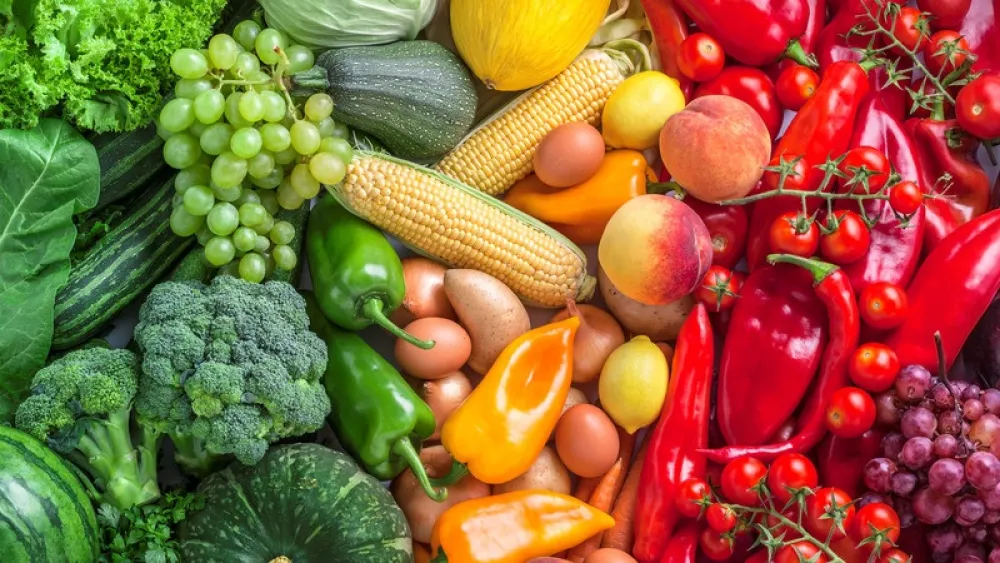Women's Health
Forget 'Power Foods' - Ladies, Choose Health Foods


There’s always a lot of buzz about the health benefits of so-called “power foods” or “super foods.” But a healthy diet means more than just a concentration of a few good foods.
In other words, you can’t just eat off of one top 10 list. Fruits, vegetables, whole grains, healthy fats and healthy proteins – you need them all.
With that being said, there are some food choices that are higher on the nutrient-rich list that women should be including in their daily diets.
I don’t call them power foods. I don’t call them super foods. It may not be trendy, but I simply call them health foods.
Health foods
Fruits
- Blueberries carry a wide assortment of antioxidants. For women searching for the “fountain of youth,” they can reduce DNA damage, which may help protect against aging. Blueberries have been shown to help prevent obesity, diabetes, heart disease and Parkinson’s disease. They also have anti-inflammatory properties that help the brain with cognition. As a bonus, they are relatively inexpensive.
- Pumpkin is packed with beta-carotene and lutein (antioxidants). If you aren’t a pumpkin fan, you could try other brightly colored fruits such as papaya or yellow squash. Pumpkin seeds are also high in omega-6 fatty acids. Toasting the seeds makes for a great snack, as the tryptophan they contain can help women stay happier and less susceptible to mood swings. (P.S. – No, a pumpkin spice latte doesn’t count!)
- Apples have always been known to be high in fiber and very beneficial for digestive health. They are a good source of natural energy. Some studies suggest that the polyphenols apples contain can boost sexual arousal and pleasure in women.
Vegetables
- Kale is a leafy green that has lots of calcium, iron, fiber and vitamins A, C, E and K. It has five times as much beta-carotene as broccoli and carries cancer-fighting phytochemicals and lutein. Kale can also help lower cholesterol, which may decrease the risk of heart disease – the leading cause of death for women.
- Onions aren’t technically vegetables, but they are great for you. They have anti-inflammatory properties and a flavonoid that’s proven to fight congestion. Red onions are better than yellow. The brighter the color, the more flavonoids. Onions contain organosulfur compounds, which, like kale, can help prevent cardiovascular disease.
Grains
- Oats are inexpensive healthy carbs. They are high in soluble fiber, which may help reduce the risk of breast cancer in pre-menopausal women and decreases LDL (bad cholesterol). Oats are rich in silica, which is important for bone, muscle and joint health. They have also been shown to boost serotonin, which affects our moods and cognition.
- Quinoa is a low-carb whole grain. It’s a complete protein carrying all eight essential amino acids. Quinoa is also a great source of manganese, which can help women who struggle with PMS symptoms.
Nuts and beans
- Almonds have as many powerful antioxidants as green tea and broccoli. They fight fine lines, wrinkles, heart disease, cancer and stroke. One cup of almonds has more potassium than a banana and more calcium than a cup of milk. They contain folic acid, which is important during pregnancy in helping to lower the risk of birth defects.
- Beans are high-fiber, healthy sources of protein. They can reduce cholesterol and your risk of heart disease and diabetes. Lentils, lima beans, chickpeas, kidney beans and black beans are all low in fat and rich in iron. Most menstruating women need more iron in their diets.
- Walnuts are packed with omega-3 and omega-6 fatty acids, which are critical to building healthy cells, maintain brain and nerve function, and more. Also rich in B vitamins, walnuts help fight off free-radicals, potentially helping women maintain a glowing, youthful appearance.
Healthy fats
- Avocados are high in monounsaturated fats, which are good for cardiovascular health. The calcium in avocados help women maintain bone strength and density.
- Flax seeds are great for digestive health and recommended for women who suffer from irritable bowel syndrome. While it is an actual seed, you don’t get the omega-3 or omega-6 fatty acids unless you grind it or use flax seed oil. The lignans found in flax seeds may decrease a woman’s risk of endometrial and ovarian cancer.
- Chia seeds contain protein, calcium and powerful antioxidants. Per ounce, they are higher in omega-3 than flax seeds. Chia seeds help keep you feeling full longer, are a great source of energy and can help boost metabolism.
Herbs
- Oregano is probably the most potent antioxidant-dense food per ounce. It also has great antibacterial properties. Oregano tea has been shown to help reduce menstrual cramps.
- Garlic isn’t technically an herb, but it certainly adds flavor to any food. It can decrease the risk of breast cancer and heart disease. It can serve as a natural antibiotic and has anti-inflammatory effects.
Sweets and treats
- Tea and coffee have great health benefits. Caffeinated or decaffeinated, both beverages decrease cardiovascular risk and share cognitive benefits. Coffee decreases your risk of type 2 diabetes, and some studies show that drinking coffee decreases your chances of getting Parkinson’s disease. Tea decreases the risk of cancer and high blood pressure. Black coffee is better for you if you don’t add cream. The recommended dose for both is three to six cups per day.
- Dark chocolate containing 70 percent cocoa or more has been shown to decrease stress, blood pressure and cholesterol while improving mood. It’s also been studied to reduce the risk of stroke.
As is the case with most things, variety and moderation ought to be your approach with a healthy diet. If you have questions about what you should or should not be consuming, speak with your Methodist Physicians Clinic health care provider.


